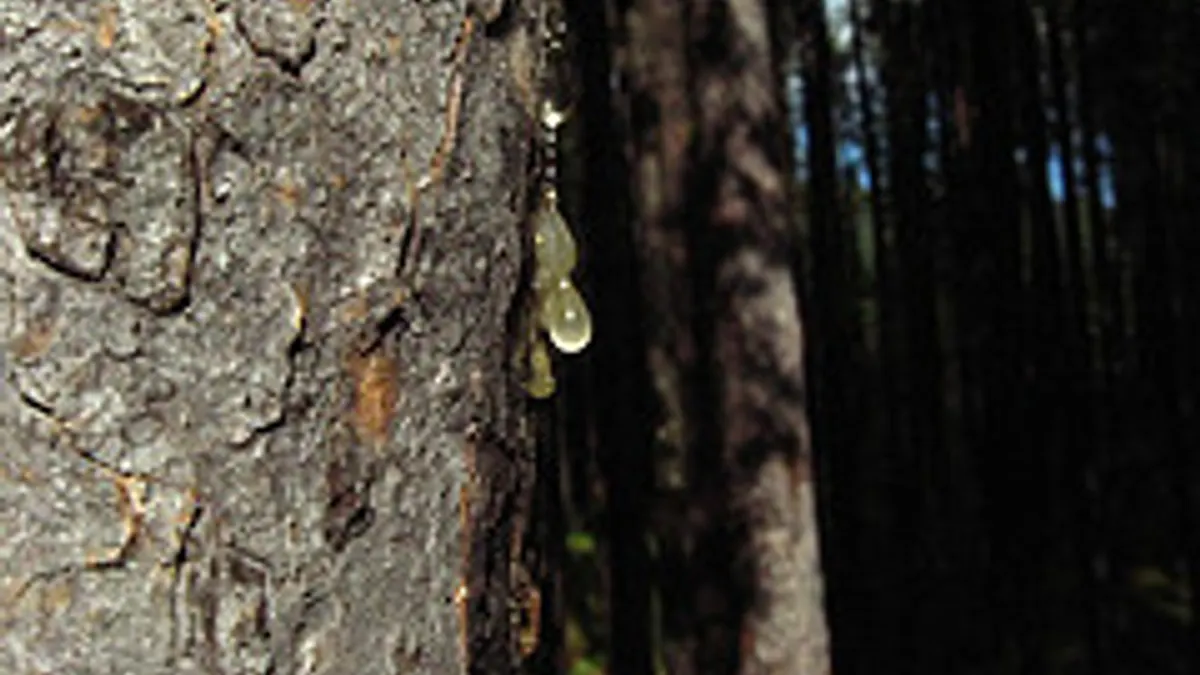Dive summary:
- Chuanbing Tang, a researcher at the University of South Carolina, is developing a new plastic made from tree resin.
- Evergreens such as pine trees, firs and other conifers are the main producers of this resin, which is rich in hydrocarbons, similar to some components of petroleum.
- The largest hurdle for this process to overcome is performance inferiority of the resin-based plastic compared to other plastics.
From the article:
According to Tang, molecules derived from wood products are particularly worthwhile targets. "They're a rich source of the cycloaliphatic and aromatic structures that make good materials after polymerization," he said. "They have the rigid molecular structures and hydrophobicity that materials scientists know work well."
They also have an advantage at the end of their life cycle. By virtue of being a direct product of biology, the renewable starting materials are a familiar sight for the microbes responsible for biodegradation. "Most plastics from non-renewable resources are generally not biodegradable," Tang said. "With a polymer framework derived from renewable sources, we're able to make materials that should break down more readily in the environment." ...













